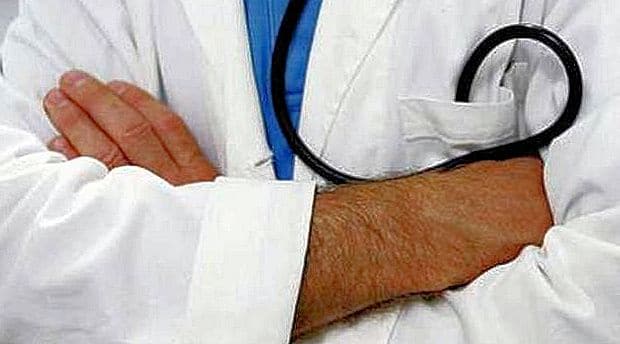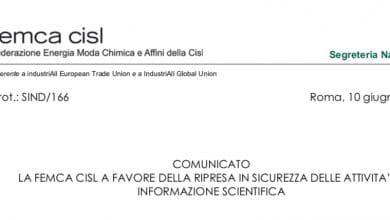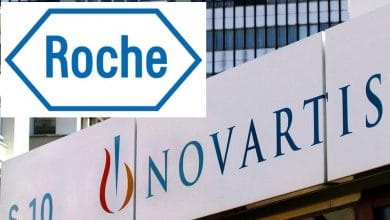
Doctors, the debate on the protection of the profession opens in Fnomceo. Today comparison of the Regions in view of the agreement on cuts with the government
St strikes, councilors disavowed by Sisac, unexpected union fronts, and even a new union entering the scene – the Amgi: all testify to the delicate moment of confrontation with the regions that family medicine is experiencing. The Fimmg union has declared a strike for May 19, but the other unions are not in agreement.
strikes, councilors disavowed by Sisac, unexpected union fronts, and even a new union entering the scene – the Amgi: all testify to the delicate moment of confrontation with the regions that family medicine is experiencing. The Fimmg union has declared a strike for May 19, but the other unions are not in agreement.
For Fimmg the problem lies mainly in Sisac, the counterpart interregional agency which denies the validity of the March 4 agreement between unions, the government and the president of the sector committee (the Ligurian health councilor Claudio Montaldo ed). The March agreement improved the guidelines in the sense wanted by the doctors: for example, it avoided allocating the salaries of those who work in the old ones to the new groups.
Fimmg's accusation is that Sisac considered the agreement "an expression of personal assessments of the president of the sector committee". Moreover, although the result of the same sector committee, the new Policy Act does not fully implement the agreement, and for this reason neither Fimmg nor the other unions like it. Furthermore, if it is true that with the tacit assent the Ministry of Health would have given him the ok, it is also true that the government will only be able to approve it in 15 days and until May 13th all the negotiations in Sisac would be "pour parler" .
Fimmg, which is pressing to reach a national agreement so as not to disarticulate the general medicine service between the various regions, provocatively asked that the table be moved to Aran, the agency for hospital contracts, "where a consolidated experience and negotiating tradition could guarantee more correct behaviour".
 The other unions, however, do not have the same demands. And they won't strike. Snami has repeatedly pointed out that in reality it would be necessary to strike to avoid a "disposable" agreement such as the one that is looming. Snami president Angelo Testa then underlines how it is not advisable to strike: MMGs who go on strike must guarantee «urgent home visits, scheduled assistance for terminally ill patients, integrated home assistance (Adi) and services provided for by regional agreements, one works almost routinely and undergoes withheld for work regularly performed.
The other unions, however, do not have the same demands. And they won't strike. Snami has repeatedly pointed out that in reality it would be necessary to strike to avoid a "disposable" agreement such as the one that is looming. Snami president Angelo Testa then underlines how it is not advisable to strike: MMGs who go on strike must guarantee «urgent home visits, scheduled assistance for terminally ill patients, integrated home assistance (Adi) and services provided for by regional agreements, one works almost routinely and undergoes withheld for work regularly performed.
 Pina Onotri, SMI secretary, agrees: «Anything but a strike is the time for unity, for self-criticism, and not for divisions. Don't put in place initiatives aimed at closing yet another hypo-resource agreement". In the name of unity, the Smi-Snami-Simet unions have taken a first step by signing a declaration against the cuts envisaged at the state-regions conference with Fassid specialists, Snr radiologists and Cgil-Cisl-Uil.
Pina Onotri, SMI secretary, agrees: «Anything but a strike is the time for unity, for self-criticism, and not for divisions. Don't put in place initiatives aimed at closing yet another hypo-resource agreement". In the name of unity, the Smi-Snami-Simet unions have taken a first step by signing a declaration against the cuts envisaged at the state-regions conference with Fassid specialists, Snr radiologists and Cgil-Cisl-Uil.
And now, again under the sign of the "No to the convention", Bartolomeo Del Zotti from Bergamo, launches the Independent General Medicine Association, a non-partisan union, deeming the measure complete due to the risk of economic sanctions for inappropriateness, «sanctions already in place for several cases. The responses of the traditional trade unions have always been passive acceptance and consequent signing of the counterpart's proposals, with only some local negotiations on additional quotas, often in the face of unworthy and shameful tasks and requests. It's time to say enough and to re-found a new independent trade union, without bosses and bosses».
Mauro Miserendino – Wednesday, 29 April 2015 – Doctor33
Fimp towards strike: with these Aft at risk specificity of the pediatrician
Safeguarding the capillarity and organization but also the skills of the pediatricians in the area, who could be dispersed among the professionals involved in the new aggregations, with repercussions on child care: this is the imperative of the freely chosen pediatricians of the Fimp union, whose the national council today decides on the strike which the Fimmg family doctors instead proclaimed on 19 May.
 «The initial intention is to align with the positions of general medicine – explains the president Giampietro Chiamenti – there is the risk that on May 13 the Council of Ministers will give the go-ahead to a policy act that we do not like and that up to now Sisac has interpreted in a remarkably rigid way. It is possible that the Renzi government will try to remedy to avoid a strike in pre-electoral times, but the mediation ground is becoming increasingly weak. We fear the loss of the relationship of trust and of no longer being able to protect the relationship with the child and the family in territorial functional aggregations".
«The initial intention is to align with the positions of general medicine – explains the president Giampietro Chiamenti – there is the risk that on May 13 the Council of Ministers will give the go-ahead to a policy act that we do not like and that up to now Sisac has interpreted in a remarkably rigid way. It is possible that the Renzi government will try to remedy to avoid a strike in pre-electoral times, but the mediation ground is becoming increasingly weak. We fear the loss of the relationship of trust and of no longer being able to protect the relationship with the child and the family in territorial functional aggregations".
«We have always been inclined to ensure that the pediatrician works in a team to offer more and more quality services», explains Chiamenti. «But an account is a functional job to guarantee the urgency that cannot be postponed within 12 hours. Today, if the trusted pediatrician isn't there because he has run out of hours, in the afternoon the child and family can refer a colleague nearby: this service improves performance but does not affect the personal relationship with the treating doctor. Another thing is to build new forms of aggregation in healthcare homes, and in contexts in which the bond of trust is lost in favor of a confused organization in which everyone can do everything». Is there a risk that the child will be assisted by the family doctor instead of the paediatrician of free choice?
«By forcing the interpretations locally, the specificity of the pediatrician could be jeopardized. I reflect on the complexity of our work. Considering that a family doctor is able like us to diagnose tonsillitis and give antibiotics, pediatric care has developed a different complexity in recent years. The pediatrician evaluates individual clinical contexts: the incidence of deviations in height and weight growth, sensory disturbances, relationships with school and family. Pediatric medicine has become an initiative medicine aimed at prevention, it is a peculiarity on the territory, and it should not be lost".
Mauro Miserendino – Thursday, 30 April 2015 – Doctor33
Related news: FIMP – Communication state of agitation.
ACN Pediatrics Address Act on the Organization of Pediatric Primary Care (AFT, UCCP)
Doctors, the debate on the protection of the profession opens in Fnomceo
St ì to internal debate, no to inconsistencies: the new president Fnomceo Roberta Chersevani replies to the 26 presidents of the order who are urging her to make a commitment to prevent the medical profession from being further penalised. The "twenty-six" - among whom Giancarlo Pizza, president of Bologna, author of a request to convene an extraordinary national council stands out - ask the highest ethical body for answers to paragraph 566 which gives new powers to nurses while reserving "complex acts" to doctors; a law on the definition of a medical act; easier access to work for young people; at least four annual meetings of the national council.
ì to internal debate, no to inconsistencies: the new president Fnomceo Roberta Chersevani replies to the 26 presidents of the order who are urging her to make a commitment to prevent the medical profession from being further penalised. The "twenty-six" - among whom Giancarlo Pizza, president of Bologna, author of a request to convene an extraordinary national council stands out - ask the highest ethical body for answers to paragraph 566 which gives new powers to nurses while reserving "complex acts" to doctors; a law on the definition of a medical act; easier access to work for young people; at least four annual meetings of the national council.
Among the signatories, with Pizza, are Roberto Carlo Rossi of Milan, Bruno Di Lascio of Ferrara, orders such as Potenza and Latina, but also two Omceo "run" by female presidents such as Maria Erminia Bottiglieri of Caserta and Carolina De Vincenzo of Campobasso , four Tuscan OMCEOs, the Verona-Vicenza-Trento triangle, Asti. Many first-term presidents. They often express populous areas with large hospitals.
Chersevani's reply is ready: paragraph 566 must be re-founded on different legal bases and with the interests of the assisted person at the centre, and the Fnom has decided to undertake a two-stage dialogue, first between professions and then with the institutions; but if you have to talk to the other professions, then supporting a law that details the contents of the medical act becomes risky.
Equal consistency will be required in decisions for young victims of a context in which the worlds of training and work speak little of each other. Finally, no to the proposals for the revision of the Code of Conduct, "expression of largely majority will", and "no" to "multi-convocation": there will be extraordinary advice if appropriate, but if unanimity is lacking, we are left with the decisions of the majority.
Incidentally, there is a tough fight against the punitive rules for doctors who prescribe non-protocol tests (to be built) requested by the regions on diagnostic tests and already rejected by the health minister. “We have to figure out where the orders go and what they're for. At the moment the NHS manages the doctors a bit as it thinks and we are limited to acting as supporting actors », he says Enrico Bartolini, president of Omceo Genova, expressing the reasons of the signatories.
«Each of the "twenty-six" of us considered the requests of the members, and I see at least three reasons for unease in mine in Genoa: the economism that reigns in the NHS, the too many civil liability disputes against us and young people, increasingly enthusiastic but also critical of a profession where access is difficult. Something new has happened in this electoral round, it's an opportunity to change, and to say no. The Fnom is the institution that connects us to politics. We ask you to represent us in front of laws and maneuvers that take something away from doctors every day ».
For Bartolini the debasement of the category is the result of a loss of authority of the Orders, but there are also faults of the institutions. An example? «In 1978 the Health Service launched a challenge, universality, which today cannot do without computerization, the possibility for a doctor from Genoa to call up the medical records of a patient from another region. But for now there is no such possibility.
It is the indicator of a system in which the doctor has no tools to deal with requests, and is not even understood and indeed is called into question if he is not subject to the savings requirements of the service; on the other hand it lends itself to the complaints of patients who do not feel followed. It is time to represent their responsibilities to the institutions».
Mauro Miserendino – Wednesday, 29 April 2015 – Doctor33
Today comparison of the Regions in view of the agreement on cuts with the government
 The comparison of the Regions on the contents of the cuts linked to the stability law is scheduled for this morning, in the extraordinary conference, also in view of the Government-Regions agreement, for which the appointment, in the last session of last week, was postponed this afternoon, while a new draft had arrived from the Ministry of Health which had accepted only some "indispensable" amendments from the regions.
The comparison of the Regions on the contents of the cuts linked to the stability law is scheduled for this morning, in the extraordinary conference, also in view of the Government-Regions agreement, for which the appointment, in the last session of last week, was postponed this afternoon, while a new draft had arrived from the Ministry of Health which had accepted only some "indispensable" amendments from the regions.
Meanwhile, the concerns of the supply chain are arriving on the cuts front: Assobiomedica underlines that the payback mechanism on medical devices is "destined to kill small businesses as soon as they enter the market" and "multinationals could decide to divest in Italy with serious damage to employment, innovation and the quality of the products on the market".
But fears are also raised by "the claim to renegotiate or the consequent unilateral withdrawal from contracts already stipulated between the public administration and companies, mechanisms contrary to the principles of the European Union and to the substantive principles of national law" and which could lead to an "increase in disputes between businesses and public administration, and ultimately the drastic reduction in the quality of health care services for citizens".
Among the other appointments of the regions also a session of the Regions-Health Sector Committee on the problems of renewing the national collective agreements for conventional medicine.
Wednesday, April 29, 2015 – Doctor33
Related news: FIMMG. General practitioner strike on May 19: methods and reasons. Against SNAMI and SMI – THE RECORDS





